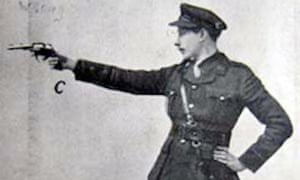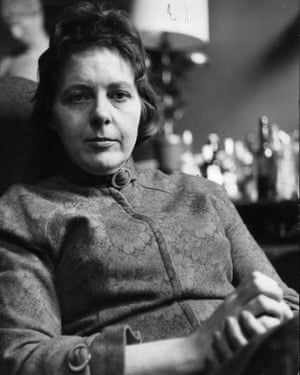Two English authors 'engineered start of Spanish civil war', claims new book
History of London’s Authors’ Club reveals plot by two members to return General Franco to mainland Spain from Las Palmas in 1936
Danuta Kean
@Danoosha
Fri 27 Jan 2017 12.08 GMTLast modified on Thu 22 Feb 2018 14.21 GMT
 ‘He had a habit of letting off revolvers in any office he happened to visit’’ … Major Hugh Bertie Campbell Pollard.
‘He had a habit of letting off revolvers in any office he happened to visit’’ … Major Hugh Bertie Campbell Pollard.It’s the kind of moment every archivist dreams of: an obscure paper trail proving the institution for whom one works played a forgotten but pivotal role in history. And it is exactly what Chris Schüler found as he rummaged through the archives of the Authors’ Club while researching a new book.
Writers, Lovers, Soldiers, Spies, published this week after being crowdfunded on Kickstarter is packed with anecdotes and marks the 125th anniversary of the club, housed near Whitehall in London. Perhaps best known as sponsor of a number of book awards, the club should also be remembered for some of its more disreputable members, said Schüler.
Two in particular stand out: Douglas Jerrold and Hugh Pollard. Major Pollard was a shady, veteran spy with a reputation for letting off his pistol at random in public places, while Jerrold was a publisher, and such a fusty one that Anthony Powell once asked of him: “How did he ever get out of The Forsyte Saga?”
But, as Schüler discovered, the two leading club members “engineered the start of the Spanish civil war”.
“In 1936, Jerrold got together over lunch at Simpson’s in the Strand with an aeronautical engineer and Louis Bolin, the London correspondent of a Spanish nationalist newspaper. Bolin later became press officer to [Spanish dictator] General Franco,” Schüler said. “Together they hatched a plot to charter a light aircraft to the Canaries for what looked like a holiday jaunt. But it wasn’t.”
What the three planned was to help Franco – who had been stationed on the island by the government in order to neuter his power – to reach his troops and lead a coup. Jerrold phoned Pollard, an old friend of notorious occultist Aleister Crowley, and arranged for a plane to take them on the supposed jaunt. To add credibility to the trip, Pollard recruited his daughter Diana and her friend Dorothy Watson, whom Jerrold noted “kept her cigarettes in her knickers”, adding approvingly: “Obviously she was the type that went to Africa.”
On 11 July, the plane flew to Las Palmas, where it picked up Franco and took him to Morocco, from where he invaded Spain and started the civil war.
“We had some very discreditable members over the years, but that is my absolute favourite story of all those I uncovered,” said Schüler, a former chair of the Authors’ Club, past membership of which reads like a roll call of the greatest British literati: George Bernard Shaw, Ford Madox Ford, Oscar Wilde, Graham Greene and Brigid Brophy.

‘Your club makes free with the name of myprofession’ … Brigid Brophy. Photograph: ANL/Rex/Shutterstock
A more benign revolution was brought about by Brophy in 1967, when the feminist novelist and essayist gave a speech to the male-only membership about their exclusion of women. Schüler uncovered scraps of her speech, Being a Woman Writer, on strips of pink notepaper. Brophy railed at members for excluding women, because “the name of your club makes free with the name of what is, after all, myprofession”.
Sharpening her pen, she added: “In [London] SW10, I am recognised as an author, but when I cross London it seems I am overtaken by an invisible change. When I arrive here in SW1, I am no longer an author, I have a dreadful suspicion that I know what you think I am. You think I am an authoress.”
Though it took another four years for the club to admit women, Schüler believes Brophy’s speech was a turning point for women in the most exclusive part of British society, the gentlemen’s clubs of London. “It became the first major club to let women in, well before the Reform, which was 10 years later, and the Athenaeum, which was 20 years later,” he said. Sadly, Brophy’s words have yet to have any effect on the Garrick Club, White’s, Pratt’s, Boodles, Brooks’s, the Turf Club and the Travellers’ Club – all London clubs that remain bastions of male-only membership.
No comments:
Post a Comment